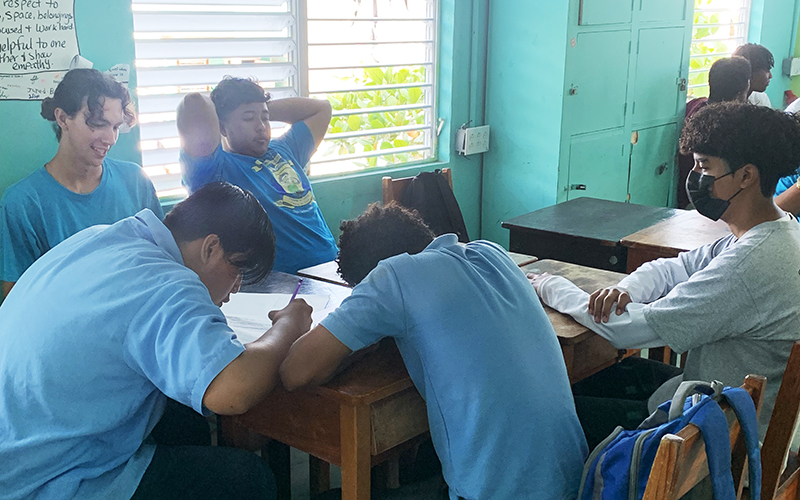
In Belize, as in many other developing countries, boys’ underachievement, high-drop-out rates and disengagement in education are a growing concern. The Department of Youth, Sports and Transport (MYST) is helping provide at-risk young males with comprehensive hybrid skills training that combines face-to-face education with open and distance learning education (ODL) to empower them so they are better placed to succeed and become more productive citizens.
The Commonwealth of Learning (COL) and MYST, through a project, ‘Technology Training for at-Risk Males 14-17 years in Belize’, has provided 200 young men in Belize City with the opportunity for gainful employment, as well as facilitating many to return to school.
The boys who participated in this COL-partnered training project now have more skills to pursue opportunities they would only have developed after attaining the training, as presented and discussed with the UNICEF/Caricom Youth Secretariat and the parents of the boys.
Given the success of the previous project, a new project ‘Skills Training for At-Risk Males Ages 14-17’, is being offered to scale up the reach to 225 more boys nationally and is extending skills training on topics such as livelihood training in agriculture (farming), hospitality management and customer service. To complement the educational component of the project, boys in the new program will be linked with employers for internships/apprenticeships to acquire practical employment post-project completion.
Skills training programs such as this one will also enable at-risk youth to access higher education or full and part-time employment in the country.
Previously, the CARICOM Youth Secretariat and other organisations, specifically UNICEF, came to Belize to conduct a study on the impact of youth initiatives in the country and applauded the efforts of COL and MYST in contributing to the development of young boys in the country.
As Kevin Cadle, Director of the Ministry of Youth Services, Belize, noted, “Programmes, such as the one supported by COL, see young people who may previously have been involved with gangs returning to the classroom.”
COL’s Gender Adviser, Mig Alphonso, noted, “It is important for any intervention for addressing boys’ disengagement and high drop-out rates to have diverse teaching pedagogy that includes more active learning through engagement activities and mentorship components for students.”


